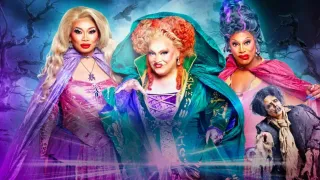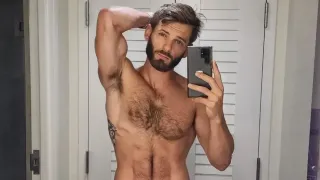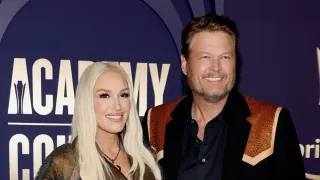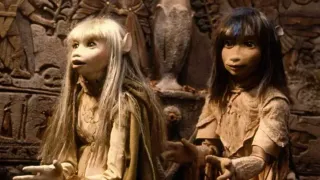
7 hours ago
Amazon Issues Anti-Bullying Statement as “The Summer I Turned Pretty” Cast Faces Online Harassment
READ TIME: 3 MIN.
Amazon’s Prime Video took an unprecedented public stand this week against a wave of social media bullying directed at cast members of the hit young adult series “The Summer I Turned Pretty.” On Wednesday, just before the highly anticipated release of the eighth episode in the show’s third and final season, the streaming service issued a clear and direct message to its online fanbase: “Act normal online.” The statement, posted across the show’s official social channels, comes after a noticeable escalation in negative behavior within the series’ digital fandom .
Prime Video’s statement was unequivocal in its condemnation of harassment, reiterating the platform’s community standards: “We have a ZERO tolerance policy for bullying and hate speech. If you engage in any of the following you will be banned: hate speech or bullying, targeting our cast or crew, harassing or doxxing members of the community.” The official account further appealed to the fanbase’s sense of community, adding, “Cousins is our safe place. Everything good, everything magical. Let's keep the conversation kind this summer” .
The post was accompanied by a re-sharing of the show’s community guidelines, which have become increasingly important as the series’ popularity has soared. The guidelines emphasize respect, kindness, and the importance of maintaining a safe online environment for all fans, regardless of identity.
The recent spike in online negativity has been particularly acute for Gavin Casalegno, who portrays Jeremiah—a character central to the show’s LGBTQ+ narrative arc. In a recent interview with The New York Times, Casalegno addressed the backlash, saying, “They tend to dislike him, yes. I don’t check Instagram anymore, so I really haven’t seen that much hate. The only thing that I see is my sister sending me the memes that are really funny. I think it’s important to also understand and realize that this is a fictional story—and it’s also not me. I don’t think there’s a single human being in the world who can carry the emotional negativity to the degree that stuff like this happens. And I think that’s why Amazon did a good job of stepping in and being like, ‘Hey, no bullying.’ Though, not really going so well” .
While Casalegno’s perspective highlights the personal toll that public scrutiny can take on young actors, it also underscores the responsibility of streaming platforms and fandoms to protect the individuals who bring beloved stories to life.
“The Summer I Turned Pretty,” created by Jenny Han, has been celebrated for its nuanced portrayal of young adult romance and for centering LGBTQ+ storylines—an aspect that has resonated with queer viewers seeking authentic on-screen representation. The targeting of cast members, particularly those associated with LGBTQ+ narratives, raises broader questions about the intersection of fandom culture, representation, and the digital safety of marginalized individuals.
Media monitoring organizations and LGBTQ+ advocacy groups have increasingly called attention to the disproportionate harassment faced by openly queer actors and those playing LGBTQ+ roles. Research by organizations such as GLAAD and the Human Rights Campaign has documented the unique challenges LGBTQ+ individuals face online, including targeted misgendering, slurs, and coordinated harassment campaigns . These hostile environments can have a chilling effect on both performers and audiences, potentially undermining the sense of belonging that LGBTQ+ media is meant to foster.
Prime Video’s intervention reflects a growing trend among media companies to take more active roles in moderating online spaces connected to their content. As fan engagement shifts increasingly to social platforms, the boundaries between private individuals and public personas blur, leaving cast members vulnerable to both adoration and vitriol. The company’s statement is notable for its explicit focus on the humanity of the actors: “The show isn’t real but the people playing the characters are. The summer we started acting normal online.”
By foregrounding the real-world impact of online abuse, Prime Video sets a precedent for digital responsibility—an especially pressing issue as streaming platforms continue to champion inclusive storytelling. The platform’s willingness to ban users who violate these guidelines signals a commitment to prioritizing the well-being of both its cast and its broader fan community.
For LGBTQ+ fans, the events surrounding “The Summer I Turned Pretty” are a reminder of both the progress and the persistent challenges in mainstream media. While the show’s success represents a step forward for queer visibility, the backlash illustrates the lingering hostility faced by those who break new ground in representation. Advocacy groups have long argued that true inclusion goes beyond content; it requires a collective commitment to protecting marginalized voices from harm, both on and off the screen .
Prime Video’s response may serve as a model for other entertainment companies navigating similar issues. As digital fandoms grow increasingly influential, there is greater pressure on platforms to create and enforce policies that reflect the diversity—and the dignity—of their audiences.






